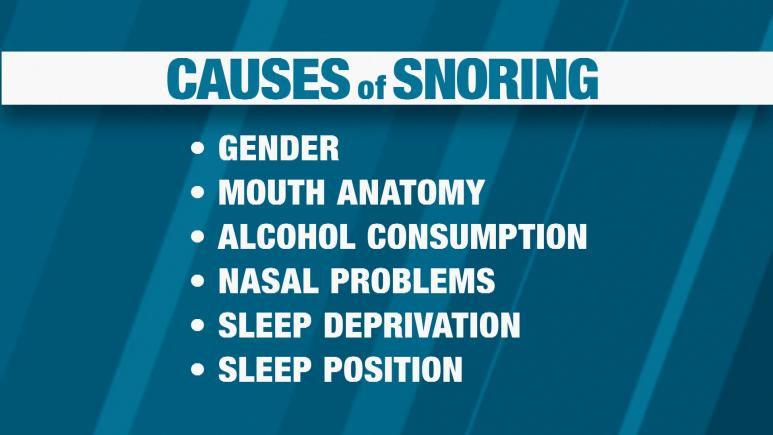

A Doctor Explains 3 Common Reasons Why You Might Be Waking Up In…

Q&A with Organizational Pro Peter Walsh + Dermatologist Shares A…

Actor Hank Azaria + Freezer Meals + Artichokes 2 Ways with Rach

See Inside Barbara Corcoran's Stunning NY Apartment + It's Steak…

How to Make Chicken and Lobster Piccata | Richard Blais

Donnie Wahlberg Spills Details About NKOTB's First Ever Conventi…

Donnie Wahlberg + Jenny McCarthy Say Rach Is Such a "Joy" + Look…

The Best Moments From 17 Seasons of the Show Will Make You Laugh…

How to Make Crabby Carbonara | Rachael Ray

Rach Chats "Firsts" In Flashback From Our First Episode Ever In …

How to Make Apple-Cider Braised Pork Chop Sandwiches with Onion …

Rach's Chef Pals Say Goodbye to Show in Surprise Video Message

How to Make Sesame Cookies | Buddy Valastro

How to Make Tortilla with Potatoes, Piquillo Peppers and Mancheg…

How to Make Shrimp Burgers | Jacques Pepin

How to Make Spanakopipasta | Rachael Ray

Andrew McCarthy Chokes Up Discussing Emotional Trip to Spain wit…

Celebrity Guests Send Farewell Messages After 17 Seasons of the …

Celebrity Guests Send Farewell Messages After 17 Seasons of the …

Andrew McCarthy Teases Upcoming "Brat Pack" Reunion Special

Michelle Obama Toasts Rach's 17 Years on the Air With a Heartfel…
Nothing sets you up for success like a good night's sleep — but unfortunately, for some of us, it can be hard to come by!
Board-certified gastroenterologist and internist, Dr. Roshini Raj, stopped by to talk about some of the most common reasons why you might be waking up at night — causing you to feel exhausted during the day.
"A lot of people can fall asleep, but they're waking up several times at night," Dr. Raj says. "That's what we're going to talk about today."
1. SNORING
If you're able to fall asleep but tend to wake up multiple times during the night, there are a number of possible explanations. Dr. Raj is breaking them down from head-to-toe, beginning at the top of your head with that dreaded sleep subject: snoring!
CAUSES:

"That snoring sound, that happens when there's an obstruction in the back of your mouth by the tissues or the structures there causing a vibration when air is passing through," Dr. Raj says. "There are many causes… [Snoring is] definitely more common in men than women. It tends to get worse if people gain some weight."
Alcohol can play a role as well, Dr. Raj explains. She says that when you drink, you relax the tissues in your throat, making them looser and enabling them to vibrate more easily.
If you have nasal congestion or allergies at night you may be more prone to snoring, as well as if you're sleep deprived. "Having a very heavy, deep sleep — again, more relaxation of those muscles and tissues in the throat," Dr. Raj says.
All of these things can contribute to snoring, and snoring gets worse if you're sleeping on your back.
WHAT YOU CAN DO:
In addition to simply avoiding alcohol before bed, losing a little bit of weight (if recommended by your doctor), treating your allergies or trying a decongestant, Dr. Raj suggests a couple of devices that might be worth a try to combat snoring:
Smart Nora: If your partner snores, then you know that sometimes, giving them a slight nudge stops the noise for a bit. If you're tired of waking up to prod your partner, then Smart Nora could be a solution. How does she work? A microphone detects snoring sounds and activates a silent pump, which is attached to an expander inserted in your pillowcase prior to bedtime. The pump inflates and deflates the pillow insert to gently move your head and interrupt snoring.
CPAP Machine: If you notice that you're very sleepy during the daytime and someone sleeping next to you has witnessed you stop breathing for a few seconds or choking in your sleep, you may have sleep apnea and you should be evaluated, Dr. Raj says. A CPAP machine can be used in the case of this condition, which is much more serious than just your usual, run-of-the-mill snoring.
2. FREQUENT BATHROOM TRIPS
Next up, bladder issues! We all wake up to go to the bathroom every now and then, but for some people, frequent bathroom trips happen often.
CAUSES:
Drinking too much caffeine or alcohol could cause you to wake up more frequently to use the bathroom, but this could also be a symptom of diabetes or even heart problems, according to Dr. Raj. Another thing that can happen — especially for men as they get older — is an enlarged prostate, she says.
"When your prostate is getting larger, it's compressing the urethra," Dr. Raj says. "This is the tube that the urine comes out, so you're going to feel that sensation of needing to go to the bathroom more because you're not completely evacuating every time you go."
This is something that should be checked out by your doctor, who can provide you with the right treatment options, the doc says.
Women can also have bladder issues, including having an overactive bladder, Dr. Raj explains. "This is when your bladder is irritable, makes you feel like you gotta go."
WHAT YOU CAN DO:
Avoiding artificial sweeteners, hot or spicy food and even tomato sauce can help for some women, the doctor advises. But there are medications that can be used as well, so as always, talk to your doctor about treatment.
3. RESTLESS LEG SYNDROME
Continuing to move down your body to your legs, Dr. Raj says Restless Leg Syndrome (RLS) can cause an uncomfortable sensation in your legs.
"You feel like you need to move them to get some relief," she says. "It can happen later in the afternoon or evening when you're laying down or sitting, and so for many people it actually wakes them up at night."
CAUSES:
"We're not exactly sure what causes it," Dr. Raj says, "but for some people the theory is it might be an issue of something in the brain. So even though you're feeling it in your legs, it's a neurologic condition."
Abnormal levels of dopamine in the brain could translate into restless legs, she goes on to explain.
WHAT YOU CAN DO:
RLS could also be due to an iron deficiency, so taking iron supplements could help for some people. For others, prescription medications can be used as well. Avoiding alcohol and caffeine later in the day can also help.
Dr. Raj also demonstrates a device called Relaxis, which vibrates gently to give you a little bit of movement in the middle of the night. It's not enough to wake you up, but just to provide some relief. A lot of people with RLS feel better if they go for a walk, Dr. Raj explains, and with Relaxis, you may not feel the need to get up and walk around at night.







